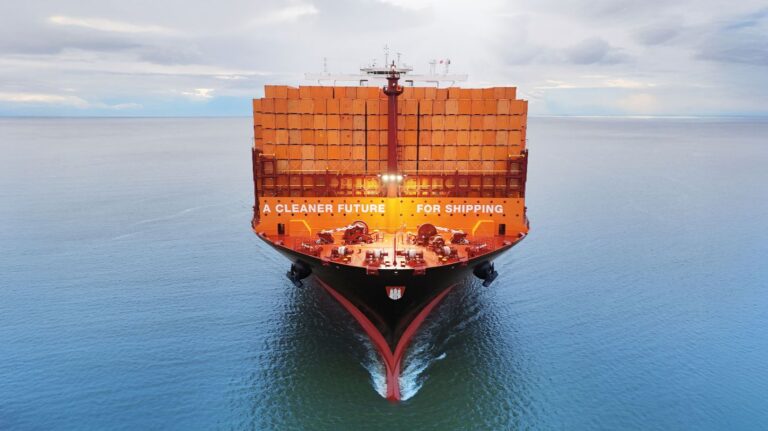DHL Global Forwarding and Hapag-Lloyd have signed a three-year framework agreement for Scope 3 greenhouse gas (GHG) emission reductions resulting from the use of sustainable marine fuels within Hapag-Lloyd’s fleet.
As part of this agreement, the first order of 25,000 tons CO²e well-to-wake (WTW) emission reduction was successfully executed in July 2025.
The biofuels are second-generation biofuels produced from waste and residue feedstock, with the partners stating that the agreement showcases the effective application of the ‘book and claim’ chain of custody mechanism.
This enables customers to claim Scope 3 emission reduction for their transport separately from the physical use of the fuel.
By decoupling decarbonisation from the physical transportation, sustainable marine fuel enabled by book and claim has risen in prominence in relation to decarbonising shipping.
This is particularly true given that the supply of sustainable marine fuels is currently limited globally and of higher cost, the partners report.
Hapag-Lloyd has been deploying second-generation biofuels since 2020 and, since 2023, has been offering its customers the possibility to claim the resulting emission reductions through its emission-reduced ocean transport product Ship Green.
Ship Green utilises biofuel blends instead of traditional fossil marine fuel oil (MFO).
Head of global ocean freight at DHL global forwarding, Casper Ellerbaek, said: “The signing of this three-year framework agreement marks a crucial step toward realising our shared vision of a decarbonised shipping industry.
“We are thrilled to partner with Hapag-Lloyd in driving the adoption of sustainable marine fuels and the book and claim mechanism, ultimately empowering our customers to achieve their climate goals.”







